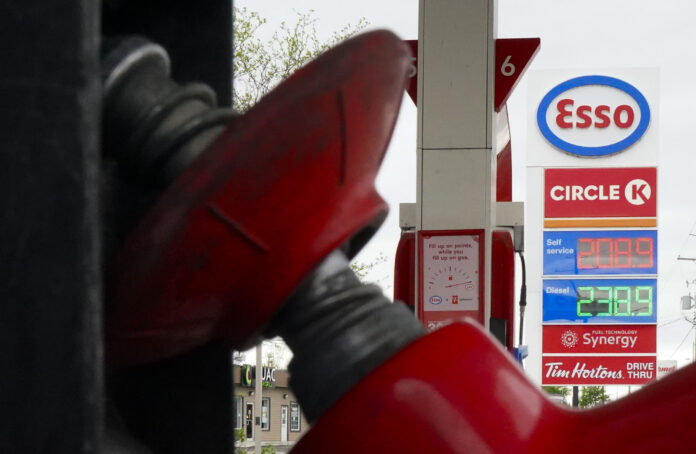Consumers can expect fuel prices at the pump to remain high into next year due to disruptions to Russian oil supplies and as refineries struggle to meet demand recovering from the pandemic, consultancy Wood Mackenzie said.
The pressure should ease in the second half of next year when several new large refineries including in the Middle East are expected to start up, WoodMac said in a report.
For now, record gasoline and diesel prices in the United States, Europe and elsewhere have cooled global oil demand by around one million barrels per day (bpd), roughly one per cent of global demand, according to Wood Mackenzie analyst Alan Gelder.
“The system looks very, very tight until a slug of new (refining) capacity comes on,” Gelder told Reuters.
Surging gas prices in Canada taking a toll on summer tourism
Profits that refineries make from distilling crude oil into fuel such as gasoline and diesel are at record highs of around US$30 per barrel, WoodMac said.
Trending Stories
Gas station manager fired after accidentally pricing gas at 69 cents per gallon
China says it may have detected signals from alien civilization
Western sanctions on Russian oil following its invasion of Ukraine in February have led to lower Russian crude production and refinery output and severely disrupted oil flows around the world, pushing oil prices higher.
The consultancy expects crude prices to average around US$100 per barrel next year compared with US$110 this year. Benchmark Brent crude prices are currently near US$120 a barrel.
Next year, average global refining margins are expected to top their five-year average range, albeit “nowhere near as punchy as 2022,” Gelder said.
No relief in sight from high gas prices for commuters
The refining sector is operating at maximum where possible, and prioritizing diesel in particular, but supply remains insufficient to meet demand as economies continue to recover from the COVID-19 pandemic, Gelder said.
The strain is particularly felt in the diesel and gasoil market which remains undersupplied by around 800,000 bpd, according to WoodMac figures.
The fuel price spike has squeezed household budgets as the cost of travel skyrockets in many parts of the world.
WoodMac expects around 2.5 million bpd of new refining capacity to be brought online over the next three quarters, including the new 400,000 bpd Jizan refinery in Saudi Arabia, Dangote’s 650,000 bpd oil refinery in Nigeria, the 615,000 bpd al-Zour refinery in Kuwait, and a number of sites in China.
© 2022 Reuters



